Crafting Meaningful Thank You Messages for Veterans
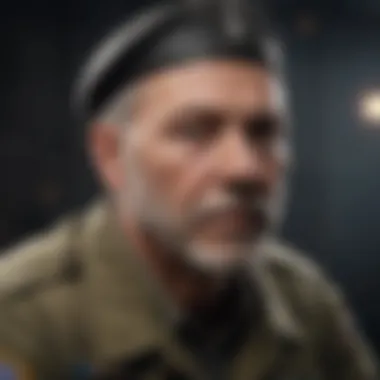
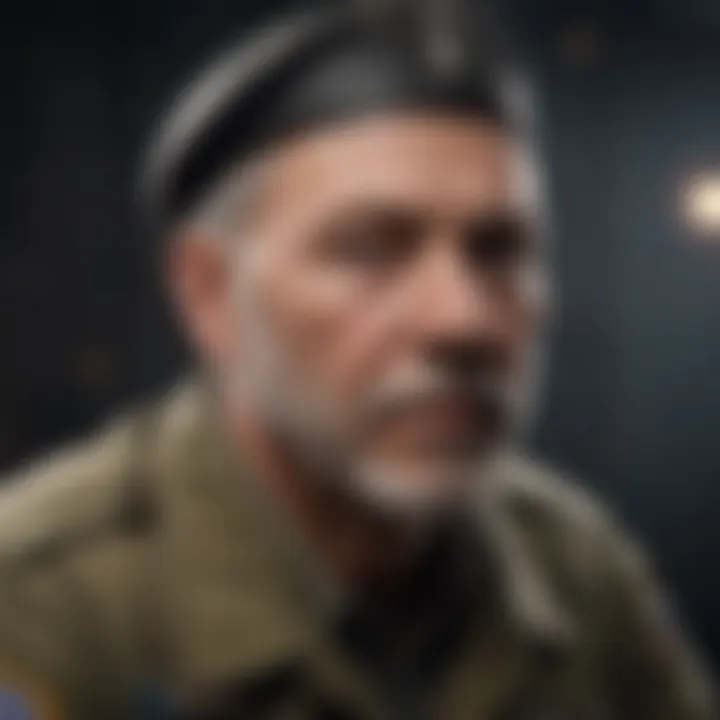
Intro
Expressing gratitude isn't just a good habit; it carries immense weight, especially when it comes to our veterans. These individuals have dedicated their lives in service to protect our freedoms, often at great personal sacrifice. Crafting a thoughtful thank you message is more than simply following a social norm; it offers a chance to acknowledge their efforts and remind them that their sacrifices are valued.
In this article, we aim to dig into various ways to express appreciation to veterans through meaningful communications. With Veteran’s Day approaching, it serves as a timely reminder for us to reflect on the histories and experiences of those who have served.
One act of gratitude can have far-reaching effects, not only lifting the spirits of a veteran but also fostering a sense of belonging and appreciation. We will break down various aspects, allowing you to better capture the essence of sincerity and gratitude in your messages to veterans.
Understanding the Importance of Gratitude
Gratitude is not just a polite gesture; it's a deep-seated cultural value that holds profound significance within society. When it comes to veterans, being grateful is even more critical. Thank you messages can transcend mere formality and make a genuine impact on those who have served. This section will explore the essence of gratitude, revealing its role in both personal interactions and society at large, as well as the unique contributions of veterans that warrant our recognition.
The Role of Gratitude in Society
In a world bustling with distractions and challenges, gratitude acts like a breath of fresh air. It fosters connections between people, builds relationships, and reinforces social bonds. When individuals express gratitude, they do more than acknowledge what others have done; they also cultivate a culture of respect and appreciation.
Gratitude can spark a ripple effect. It encourages others to express their thanks, creating a cycle of positivity. This is especially essential in military contexts, where the sacrifices made by veterans often go unrecognized. When society takes the time to appreciate their service, it sends a message: You matter, and we notice. This acknowledgment can boost morale, not only for the veterans themselves but also for their families and communities. The act of saying thank you validates their sacrifices and promotes healing for the emotional toll that service can take.
Veterans and Their Contributions
When we think about veterans, many often focus on the sacrifices made during wartime. However, their contributions extend far beyond military conflicts. Veterans bring diverse skills and experiences that enrich our communities. They often demonstrate strong leadership, resilience, and patriotism that can inspire future generations.
It’s crucial to recognize that veterans' service doesn't just stop once they hang up their uniforms. Many transition into civilian life with a determination to continue making a difference. From volunteering in local charities to engaging in activism for veterans' rights, their continued commitment to service is noteworthy. By crafting thoughtful thank you messages, we not only appreciate their past contributions but also encourage their ongoing involvement in society.
Historical Context of Veteran Recognition
Understanding the historical backdrop of veteran recognition helps us appreciate the depth of gratitude expressed in thank you messages. Not only does this context frame our celebration of Veterans Day, but it also highlights the ongoing evolution of public perception regarding veterans’ contributions. Recognizing the sacrifices they've made over years allows for a more profound connection when crafting heartfelt messages. Therefore, instead of mere rote acknowledgment, thank you messages can embody the rich legacy of service and commitment, adding layers of meaning that resonate deeply with recipients.
The Evolution of Veteran's Day
Veteran's Day, observed every 11th of November, has a multifaceted history rooted in the aftermath of World War I. Initially called Armistice Day, its purpose was to honor the ending of hostilities on the Western Front at the 11th hour of the 11th day of the 11th month in 1918. The day’s evolution into what we now celebrate as Veteran's Day took a significant turn in 1954, when President Eisenhower signed legislation to recognize all American veterans.
This transition reflects a broader societal shift, emphasizing not just military victories but also the personal sacrifices of those who served, no matter the conflict. The Fourth of July, a day of national pride, often overshadows this solemn day, yet its significance imbues a sense of shared history. Messages crafted for this occasion should not skip over these historical aspects; mentioning these elements honors veterans' pasts and illustrates an understanding of their service.
Furthermore, it’s important to touch on how modern observances incorporate themes of healing and community acceptance. For many veterans, the recognition on this day goes beyond simple acknowledgement; it signifies a society that appreciates and values their sacrifices. A simple mention can enhance your thank you messages, turning them into meaningful tokens of appreciation.
Cultural Shifts in Public Perception
Historically, veterans often faced a mixed bag of public sentiment. During the Vietnam War, for instance, returning soldiers encountered significant backlash, leading to a climate of neglect and misunderstanding about their service. However, the late 20th and early 21st centuries have witnessed a profound cultural shift, where public perception has grown more supportive and compassionate towards veterans.
Today, veterans are often lauded as heroes, serving as a crucial reminder of their sacrifices. There are numerous campaigns, both governmental and grassroots, aimed at ensuring veterans receive the respect and recognition they deserve. This evolving attitude enriches the sentiment behind thank you messages. Recognizing this shift not only allows for palpable appreciation in messages but also encourages individuals to reflect on the broader narrative that informs their appreciation.
“Gratitude is the fairest blossom which springs from the soul.” – Henry Ward Beecher
In light of these cultural changes, crafting thank you messages should take into account the journey of public perception. By integrating anecdotal references and personal connections into messages, the thank-you may resonate more profoundly, leading to more meaningful exchanges.
In summary, understanding both the evolution of Veteran’s Day and the shifts in cultural perception equips us with the necessary context to reach out meaningfully to veterans. This awareness ultimately refines the approach to expressing gratitude, transforming a simple message into a heartfelt tribute that acknowledges not just individual service, but the collective significance of their sacrifices.
Crafting a Thank You Message
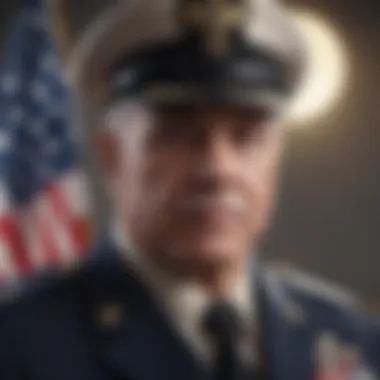
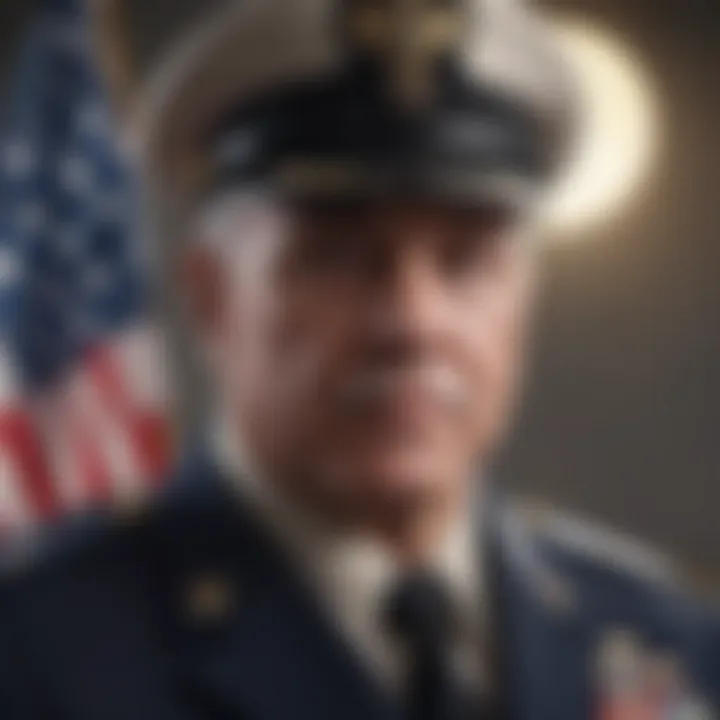
Crafting a thank you message is not merely an act of politeness; it holds significant weight, especially when directed towards veterans. The impact of a sincere message cannot be overstated, as it can bridge the emotional divide between civilians and those who have served. A thoughtfully constructed message has the potential to honor their service and sacrifices while also promoting a culture of appreciation in society. By articulating gratitude through these messages, not only do we validate the experiences of veterans, but we also encourage ongoing recognition of their contributions.
When writing to a veteran, it's essential to keep in mind specific elements that contribute to a meaningful message. The benefits are multifaceted—there’s psychological uplift for the receiver and a sense of fulfillment for the sender as well. A well-crafted note can serve as a small yet powerful reminder to veterans that their sacrifices are seen and valued.
Identifying the Right Tone
Setting the appropriate tone is critical when composing a thank you message. The tone can vary greatly depending on the relationship you hold with the recipient. For instance, when addressing a close family member who served, a more casual, heartfelt tone might be fitting. A sentiment such as, "Your brave service has always inspired me, and I am so grateful for your sacrifices. Thank you for everything!" can feel warm and genuine without being overly formal.
Conversely, if you're writing to a veteran in a more official capacity, let's say in a community outreach program, a respectful and formal tone is warranted. Here, you might say, "On behalf of our community, I extend our deepest gratitude for your heroic contributions. Your efforts in service do not go unnoticed, and we honor your sacrifices." It's all about striking the balance—keeping it respectful yet relatable.
Incorporating Personal Elements
Including personal anecdotes or specific memories can amplify the power of a thank you message. This is where you can truly make your words resonate with the recipient. By mentioning particular moments or qualities that you admire, the message can feel less generic and more tailored. For example, you might state, "I remember the stories you shared about your time overseas, and how they painted a vivid picture of courage. Your resolve has shown me what bravery truly looks like."
Personal touches like this not only demonstrate that you've taken the time to reflect but also create a stronger emotional connection. Veterans appreciate sincerity, and sharing an experience or sentiment that relates to their service can resonate deeply.
Expressing Thoughtfulness and Sincerity
Perhaps the most crucial aspect of a thank you message is the genuine expression of thoughtfulness and sincerity. It is vital to not just say thank you out of obligation, but to convey a heartfelt appreciation. "I cannot fully comprehend the challenges you faced, but I am infinitely grateful for your sacrifices. Thank you for your service to our country." This type of honesty speaks volumes and shows that you are not just completing a task, but are genuinely moved by their choices.
When crafting such messages, it’s beneficial to ponder on the feelings and experiences of veterans. Recognize the hurdles they may face post-service, and frame your message to acknowledge these challenges. It's not just about gratitude towards what they have done; it's also about an understanding of who they are. A touch of vulnerability in your message can open doors to deeper connections.
"It's often the smallest act of kindness that makes the largest impact, especially for those who've given so much to protect us."
Overall, crafting meaningful thank you messages involves careful consideration of tone, personal elements, and sincerity. Each component plays a role in ensuring that your gratitude reaches the heart of the veteran you are addressing. This effort to communicate appreciation does not just honor them; it also enriches the fabric of our communities by fostering a lasting culture of gratitude.
Different Contexts for Thank You Messages
Understanding the different contexts in which thank you messages can be crafted is essential when expressing gratitude to veterans. Each situation carries its own nuances and implications, making it crucial to tailor the message accordingly. Recognizing the context helps establish a connection, as gratitude can often resonate deeper depending on how it’s delivered. Formal acknowledgments might hold weight in official settings, while informal messages can foster a sense of community and belonging among veterans. Let’s break down these contexts more thoroughly to provide a roadmap for crafting effective messages.
Formal Acknowledgments
When thanking veterans in formal settings, it’s important to maintain a tone and structure that reflect respect and honor. Formal acknowledgments might occur in ceremonies, award presentations, or official written communications, such as letters from government representatives or organizations.
- Use Proper Titles: Address the veteran using their rank and full name, demonstrating respect for their service.
- Include Specific Contributions: Mention specific achievements or contributions the veteran made during their service. This recognition adds a personal touch.
- Keep It Concise: While detail matters, formal messages should still be succinct. Aim for clarity and precision.
For example, a message might read:
"Dear Colonel John Smith, thank you for your exceptional service in the Armed Forces. Your leadership during Operation Desert Storm not only demonstrated bravery but also inspired countless others to follow in your footsteps. Your sacrifices have not gone unnoticed, and we are eternally grateful."
Informal Messages within Communities
On the other hand, informal messages allow for a more personal connection, often shared within community gatherings, family settings, or local events. The relaxed tone in these contexts encourages heartfelt expressions of gratitude.
- Share Personal Stories: Including anecdotes about the veteran's influence can create a sense of intimacy.
- Community Involvement: Acknowledge the veteran's ongoing contributions to the local community, whether through service or mentorship.
- Be Warm and Genuine: Informal messages should feel conversational. Let your sincerity shine through.
A community message might look something like this: "Hey everyone, I just wanted to take a moment to thank Mike for all the years he’s dedicated to our community—both in and out of uniform. His stories about the challenges he faced give us a glimpse of true bravery. We’re lucky to have you, Mike!"
Messages Written for Organizations
Organizations often craft thank you messages to units, groups, or even entire communities of veterans. Here, the language should reflect both gratitude and an acknowledgment of the unity and strength found in service.
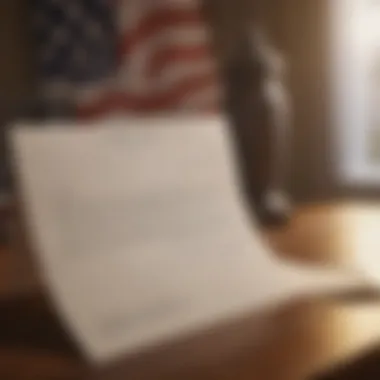
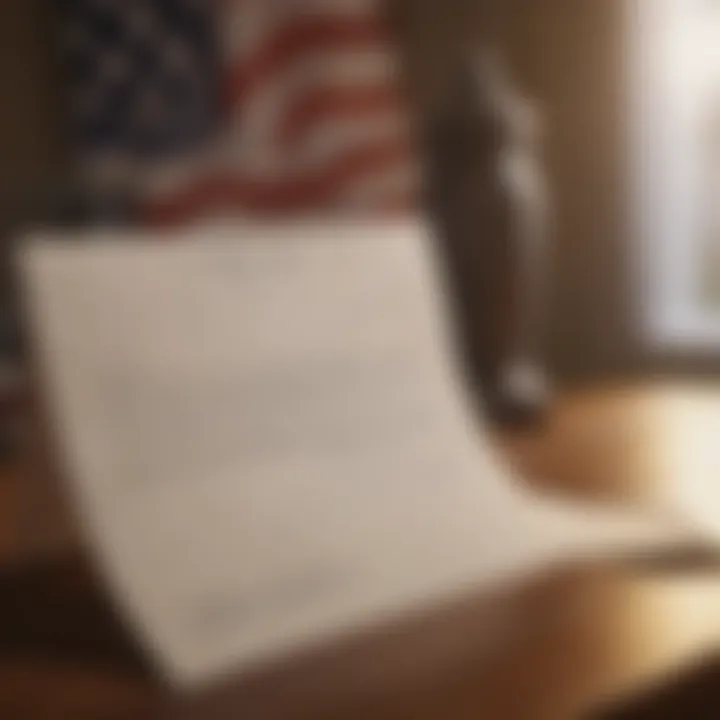
- Highlight Teamwork and Collective Efforts: Recognize the group’s contributions collectively, fostering a sense of camaraderie.
- Encourage Future Engagement: Messages can also inspire continued involvement or support from veterans within the organization.
- Follow Organizational Branding: Use the organization’s letterhead or official communication style to lend authenticity and formality.
An effective organizational message might state: "To all Members of the 101st Airborne Division, your unwavering commitment and service have shaped not just our nation but also the very fabric of our community. We extend our heartfelt thanks and encourage you all to remain active participants in our upcoming events, where your experiences can guide future generations."
In essence, the context determines the tone and style of the thank-you messages. Each setting—whether formal, informal, or organizational—requires careful consideration to craft messages that truly resonate with veterans and fortify the bonds of gratitude and respect.
Examples of Thank You Messages
Crafting thank you messages for veterans holds immense significance in acknowledging their sacrifices and contributions. Each message can serve as a bridge, connecting the emotions of gratitude with the experiences of those who have served. Important elements to consider are the tone, personalizing the message, and understanding the context in which it is delivered. By doing so, one can ensure that these messages resonate deeply, affirm the value of their service, and promote a sense of belonging.
Short and Impactful Messages
Short but poignant messages often carry a weight of emotion that longer ones may sometimes lack. These brief notes can cut to the chase, delivering direct acknowledgments of veterans’ sacrifices. Here are some examples:
- "Thank you for your service. Your bravery inspires us all."
- "We appreciate all you've done for our freedom."
- "Your service makes our lives better every day."
In crafting these short messages, the goal is to express genuine appreciation without excessive embellishment. This encourages spontaneous communication, often making the message feel more authentic and heartfelt. Using personal notes can enhance these messages significantly. A simple addition like a veteran’s name, or a reference to a specific act of service, further personalizes the sentiment, such as:
- "John, thank you for your service in protecting our freedom."
Using cards or social media platforms like Facebook to share these messages can amplify their reach, allowing others to join in on the appreciation.
Extended Messages of Appreciation
Unlike the short messages, extended messages allow for greater expression and more context. This provides a space for deeper reflection on a veteran's accomplishments and the broader significance of their service. Here’s how you could structure an extended message:
- Opening with gratitude: Start with a strong statement, expressing your gratitude clearly.
- Mentioning specific contributions: Detail what their service means to you personally or to the community.
- Encouraging words: End with encouragement or acknowledgment that while their service was significant, their experiences shape them as ongoing heroes.
For example:
"Dear Sarah, I want to take a moment to express my heartfelt gratitude for your service in the armed forces. Your dedication and bravery in the face of danger have not gone unnoticed. Knowing that you risked your life for our country gives me a profound sense of safety and respect. Thank you for your sacrifices and the lessons you share through your experiences. You’re not just a veteran in my eyes; you are a symbol of resilience and integrity."
This format not only honors the sacrifice but also offers a glimpse into how their actions have influenced others. Moreover, choosing the right moment to send these messages is crucial—holidays, anniversaries of significant military events, or even a casual day can be perfect moments to send an extended note.
By incorporating elements from both short and extended messages, one can create a range of communications that embrace the full spectrum of gratitude. Each message serves as a reminder of the personal connection and appreciation we hold for veterans.
Tips for Effective Communication
Effective communication is like a well-oiled machine; it requires the right parts working together smoothly to send a clear message. When addressing veterans through thank you messages, it’s imperative to consider not just what you say, but how you go about saying it. Here’s why this is crucial:
- Clarity: Your message should be straightforward. Veterans, like everyone, appreciate a direct approach. Avoid convoluted sentences that can confuse the sentiment you are trying to express.
- Sincerity: Words wrapped in genuine feelings resonate more deeply. Veterans often have complex emotions about their service, so a heartfelt message can impact them profoundly.
- Respect: Recognizing someone's service should always carry an undertone of respect. This is especially important when addressing veterans, as your communication reflects your acknowledgment of their sacrifices.
In essence, effective communication fosters connections. It builds bridges of understanding and appreciation.
Avoiding Common Pitfalls
When crafting messages, it’s all too easy to stumble into certain traps that lessen the impact of your words. First off, avoid hyperbole. Phrases like "you are our only hope" can feel insincere or exaggerated. Instead, stick to genuine expressions that reflect your true feelings.
Also, steer clear of clichés. Words like "thank you for your service" can sound robotic if overused. To avoid this, try personalizing your message based on the veteran's individual experiences. Incorporating real anecdotes can give your message a touch of uniqueness.
"To err is human; to really screw things up takes a computer." – This humorous take highlights that while errors in communication are common, understanding and intent can minimize them significantly.
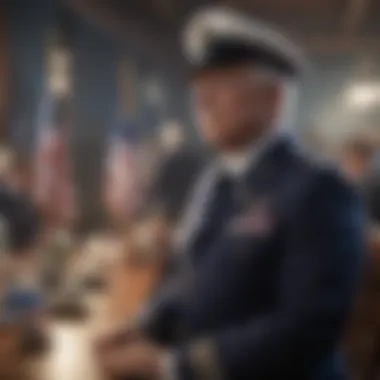
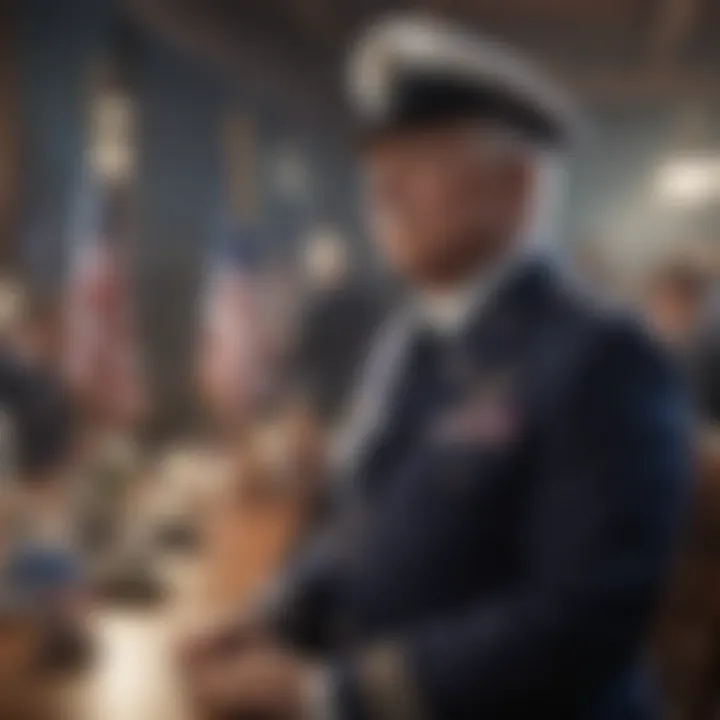
The Importance of Timing
Timing is everything when it comes to delivering messages of thanks. Sending a note should not be just a seasonal gesture but should feel relevant and timely. For instance, presenting your gratitude on Veteran’s Day holds societal significance, yet the impact remains potent throughout the year.
Consider also personal milestones. If you know a veteran has a significant anniversary relating to their service, a well-timed message can carry an additional layer of meaning. You want them to feel remembered, not just on special occasions but whenever you can create a moment of connection.
Maintaining Continuity in Recognition
Gratitude should not be a one-off affair. It’s not just about a single thank you note; it’s about establishing a rhythm of recognition. Showing appreciation can take many forms—be it follow-up messages, community involvement, or continual public acknowledgment.
Drafting a plan can help in keeping this continuity alive. For instance, if you are part of an organization that interacts with veterans, schedule regular thank you events or initiatives that spotlight their contributions. Consistency shows that respect and gratitude are anchored in your values and not fleeting thoughts.
In summary, weaving gratitude into the fabric of communication with veterans is much more than mere words; it’s about creating meaningful interactions that honor their legacy and sacrifices.
The Impact of Thank You Messages
Expressing gratitude through thank you messages to veterans holds a weightier significance than one might initially perceive. These messages are not merely polite gestures; they serve as a vital tool for reinforcing national appreciation and acknowledging personal sacrifices. At their core, thoughtful messages can evoke feelings of recognition, respect, and even healing. For veterans, knowing their contributions are valued has an uplifting impact, especially given the mental and emotional rollercoaster many experience post-service.
One aspect to consider is the psychological effect these messages have on veterans. Gratitude acts as a balm, helping alleviate feelings of isolation or invisibility that can arise after returning from military service. By acknowledging their service, we are helping them reconnect with their own sense of value. Through a simple note or verbal acknowledgment, we can validate their experiences and sacrifices, reminding them that they are not forgotten.
"Gratitude is not only the greatest of virtues but the parent of all others." - Marcus Tullius Cicero
Moreover, there's a ripple effect that occurs when one engages in expressions of gratitude. Not only does it uplift the recipient, but it can foster a culture of appreciation in communities as well. By encouraging others to participate in this practice, we amplify its significance, creating an atmosphere where gratitude is normalized and celebrated. This practice can become contagious; as people express thanks, they may feel compelled to share stories or encourage others to reflect on their contributions, further emphasizing the importance of collective morale.
Psychological Effects on Veterans
When it comes to the psychological effects on veterans, the impact of receiving heartfelt thank you messages cannot be overstated. Many veterans struggle with PTSD, anxiety, or depression, conditions often compounded by a sense of disconnection from civilian life. A sincere thank you can remind them of their valued place within society.
- Validation of Experience: Hearing "thank you for your service" provides reassurance that their sacrifices matter, promoting emotional validation.
- Reduction of Isolation: By expressing gratitude, veterans may feel less alone, creating connections where they feel acknowledged.
- Boost in Self-worth: Recognizing their contributions can enhance their self-esteem, encouraging healing and adaptation to civilian life.
These effects are not merely anecdotal; extensive research in psychology supports the connection between gratitude and an individual's mental health. Therefore, sending messages of appreciation is not just favorably received, it can also serve as a stepping stone to emotional recovery.
Building Relationships Through Gratitude
Gratitude can also play a pivotal role in building and strengthening relationships, not just with the veterans themselves but also within communities. Crafting a heartfelt thank you message opens a channel of communication, bridging the gap between veterans and civilians.
- Community Engagement: When individuals show appreciation for veterans, it often leads to increased community involvement, fostering discussions about service and sacrifice.
- Mutual Understanding: Expressing gratitude encourages curiosity about veterans' experiences, allowing for shared stories that cultivate empathy and understanding.
- Support Networks: As gratitude grows, so too does the potential for creating supportive networks that empower both veterans and civilians in shared experiences.
By weaving gratitude into our everyday discourse, we not only uplift those who have served but also knit closer ties within our communities. This reciprocity nurtures an environment where stories can be exchanged and histories honored, ensuring that the sacrifices made do not fade into obscurity.
In summary, the impact of thank you messages extends far beyond mere words. They’re a vital lifeline for veterans who crave recognition, acceptance, and understanding in a society that can often seem disconnected from the realities of military life. With the right approach, we can help heal wounds that can often be unseen.
End
In the realm of expressing gratitude, the act of sending thank you messages to veterans stands as a profound gesture that goes beyond mere words. These messages forge connections that bind us to those who have shown remarkable bravery and made significant sacrifices for the greater good. It’s not just about saying thank you; it’s about acknowledging their journey, their struggles, and their unwavering commitment to serve.
When crafting a thank you message, one must recognize several critical elements. First and foremost, the authenticity of the message plays a pivotal role. Veterans often see through disingenuous sentiments; therefore, heartfelt messages resonate more deeply. Personal anecdotes or shared experiences can help bridge the emotional gap, making the message feel genuine and relatable.
Benefits of Thank You Messages
- Emotional Wellbeing: Such messages serve as a continuous reminder to veterans that their contributions are recognized and valued, which can soothe the pains of post-service life.
- Relationship Building: Gratitude communicates respect, fostering stronger bonds within communities and organizations.
- Cultural Shift: Regular expressions of thanks can contribute to a cultural shift that honors and celebrates military service, influencing how future generations view service members.
Moreover, timing is crucial. Recognizing veterans during significant milestones such as Veteran's Day enhances the impact of your message. However, it’s equally important to remember them beyond just those days. Simple messages during ordinary times can create a sense of appreciation that lasts throughout the year.
"Gratitude is not only the greatest of virtues, but the parent of all others."
– Marcus Tullius Cicero
Ultimately, the last impression is that every thank you message carries the weight of acknowledgment and respect. By being thoughtful and intentional in our communications, we genuinely honor the service and sacrifices of veterans. In this way, we not only express gratitude but also contribute to a larger movement that recognizes and uplifts those who have given so much. The power of words is immense, and it is up to us to wield them wisely.



